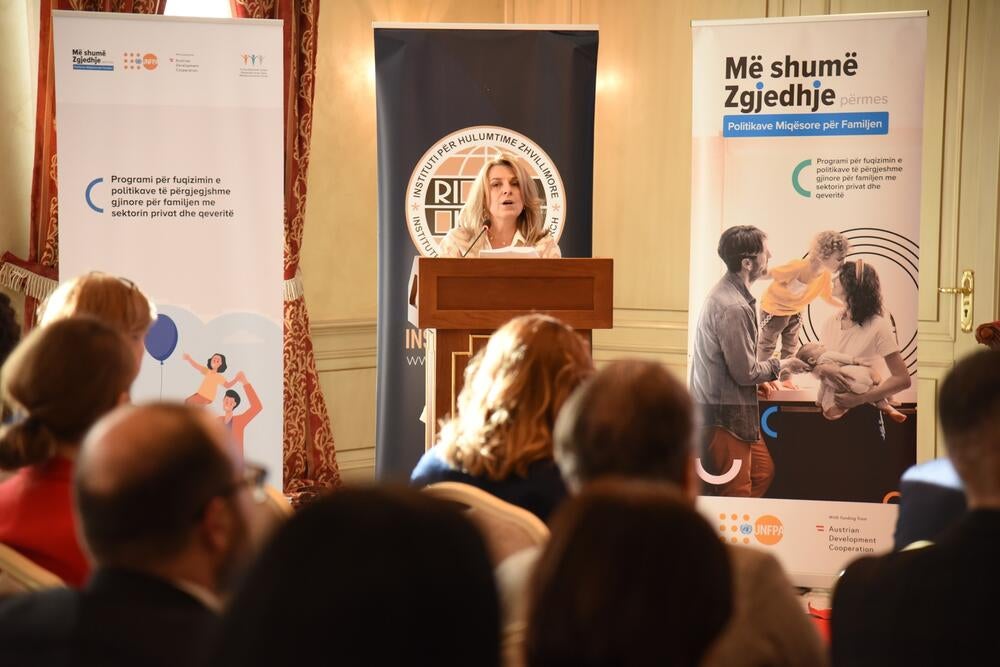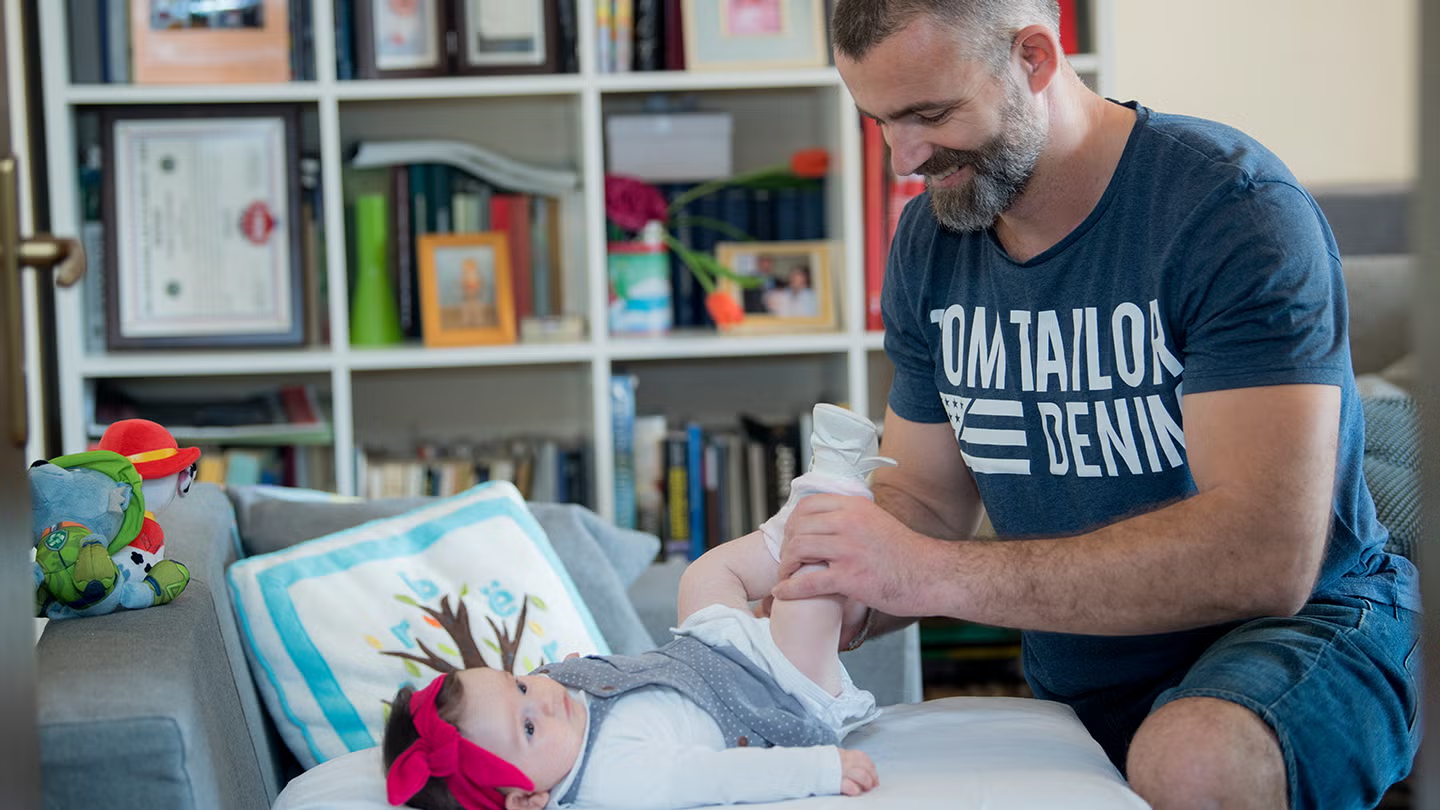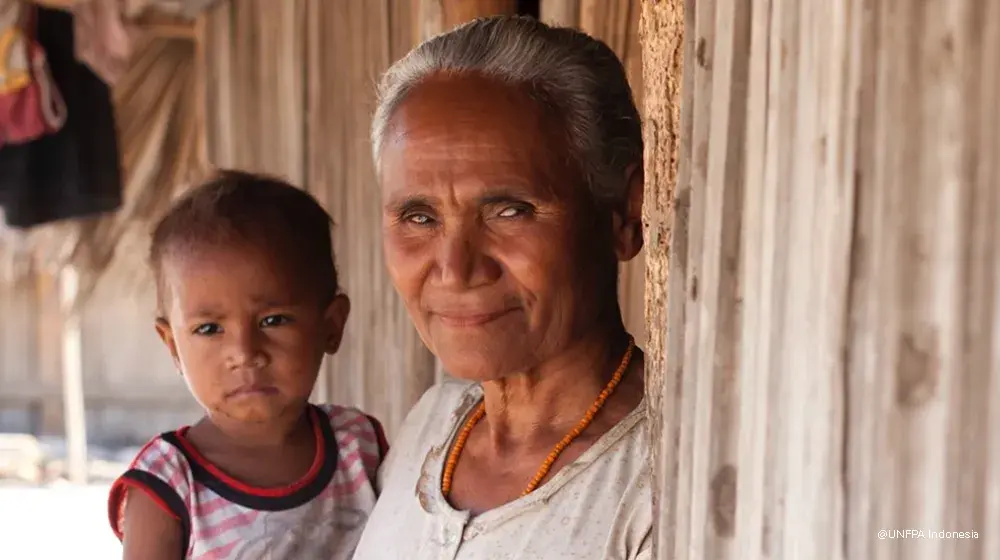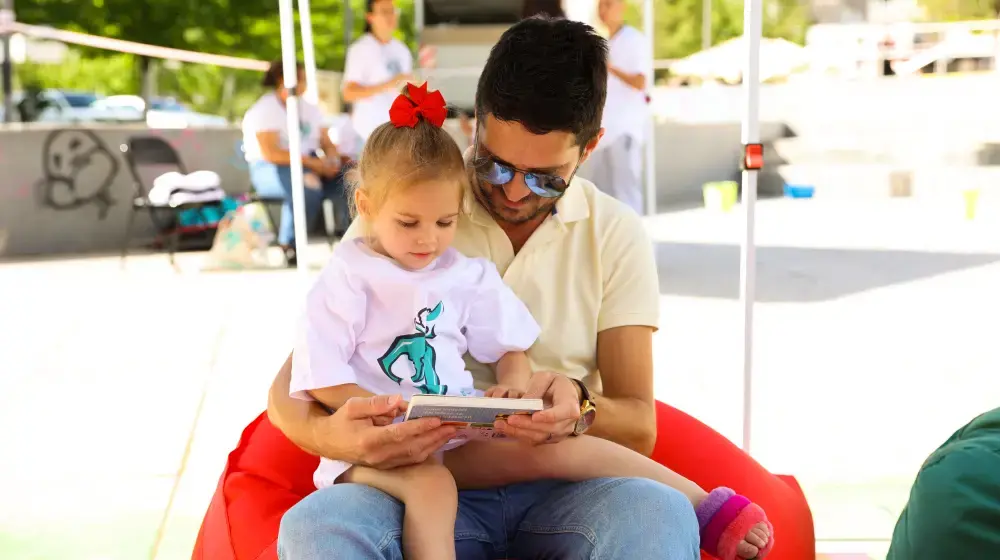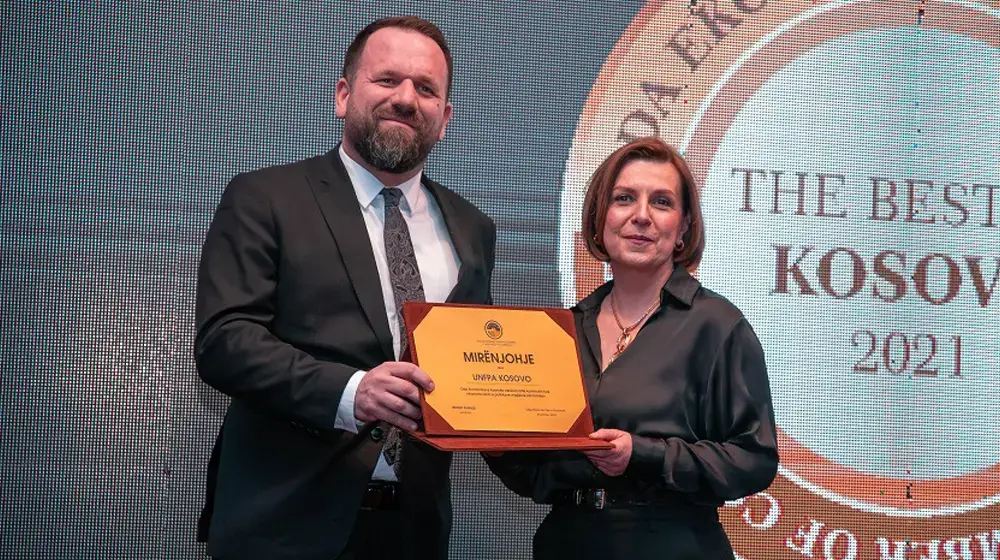Despite steady improvements, Kosovo still faces challenges in achieving gender equality in employment. Women’s participation in the labor market is among the lowest in the region, with only 24.2% of women actively engaged compared to 57.8% of men. This disparity underscores the need for more systemic solutions to empower women and close the gender gap.
One of the ways in which UNFPA Kosovo strengthens gender equality is through its continuous advocacy action on gender-responsive family policies and promotion of family-friendly workplaces. In collaboration with stakeholders from the public and private sectors, civil society, and international organizations, UNFPA highlights the importance of inclusive practices that benefit both families and businesses. Through a recent public discussion, we showcased the results of our work thus far in order to send a strong public message that gender equality at workplace is feasible and good for business.

Policy Gaps and Challenges
Prior to moving to our event and work, a number of key challenges and data are needed for context setting.
Under the 2010 Labor Law, women can take up to 12 months of maternity leave, as per provisions below:
- The first six months of maternity leave are paid by the employer at 70% of the contracted basic salary.
- The following three months are covered by the government at 50% of Kosovo’s average salary.
- Mothers can also take an additional three months of unpaid leave (10th to 12th month).
- Fathers are entitled to only three days of paternity leave upon the birth or adoption of a child.
Implementation of these legal provisions remains inconsistent. Parental leave policies are yet to be realized, making it particularly challenging for women to enter the labor market or to return after childbirth, especially due to the lack of affordable childcare services and flexible working arrangements.
The private sector, especially small and medium enterprises, remains discouraged by the additional financial burdens of implementing such policies. Employers bear the cost of both maternity leave payments and operational adjustments, often resulting in employment discrimination of women, particularly of women of reproductive age.
Showcasing Solutions and Success Stories
The framework through which UNFPA Kosovo is responding to these challenges is “Expanding Choices: Gender-Responsive Family Policies for the Private Sector in the Western Balkans – Phase 2,” a project supported by the Austrian Development Agency. It is a comprehensive program of advocacy for legislative upgrades and working directly with the private sector to facilitate positive change. The project’s notable success has been to demonstrate that work-life and gender-equality policies work, that they are not detrimental to business, and that they are financially feasible for the public budget.
At times, we organize public events to make this point and have it heard broadly. One was organized recently with the Women's Economic Forum, providing a platform to showcase successful family-friendly workplace policies and their impact in promoting gender equality and fostering socio-economic development in Kosovo. It brought together public sector representatives, private sector leaders, civil society, and international organizations, with the discussions emphasizing the critical connection between gender equality, family support, and sustainable development, underlining the importance of collaboration in advancing these policies.
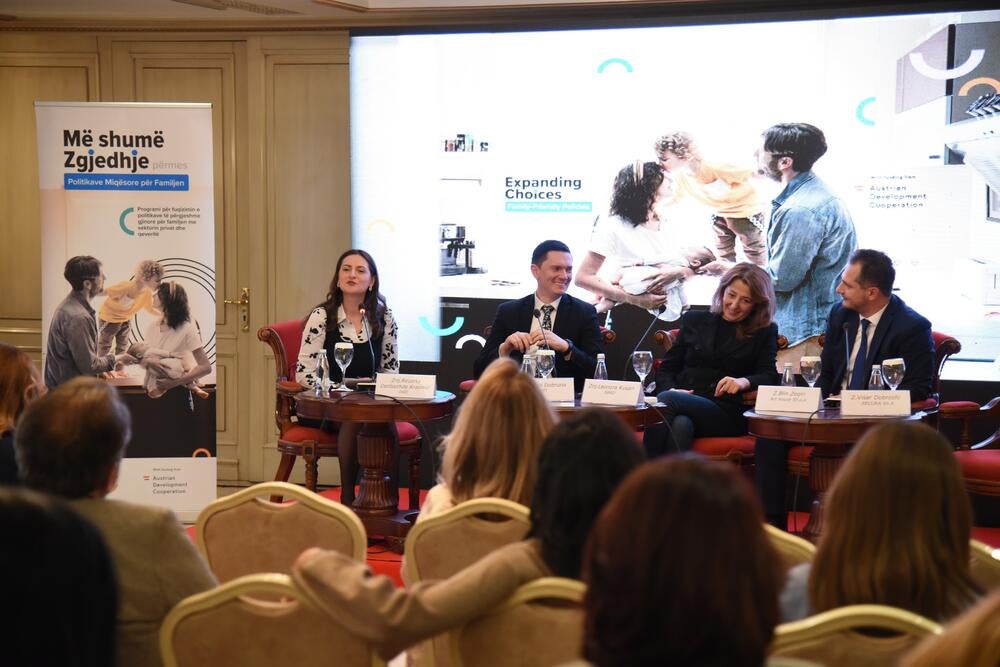
Private Sector Engagement: A Model for Progress
As noted, one of our focus areas for Expanding Choices is the private sector. A central point is to show that family-friendly workplace practices should not be seen solely as a cost but rather as a long-term investment that benefits businesses, employees, and society as a whole. This was all visible at the above event, where we video-featured and shared the perspectives of the private sector.
One is the Art House Sh.P.K., whose CEO Blin Zeqiri shared that his company not only complies with maternity leave legal provisions but also goes beyond by offering an additional benefit: fathers are granted one day off (Fridays) for six months following the birth of their child. Other testimonials by our champion companies note real advantages of applying family-friendly policies. Thus, a Raiffeisen Bank employee has told us that for her “as a mother of three, the flexible working hours have been invaluable in balancing work and family life. Thanks to this flexibility, I can calmly prepare my children in the mornings, take them to kindergarten, and start my workday feeling relaxed and focused.” A KIVO company executive noted that they “prioritize employee well-being, creating a workplace where people feel comfortable and enjoy their work. As a result, in eight years, less than 10 out of 120 employees have left.” Whereas a Gjirafa company employee explained how “as a father, I truly appreciate the family-friendly policies in place. Being able to work from home two days a week—and having the flexibility to pick up my daughter from school or even bring her to work when needed—is a privilege. It allows me to be present in her life while staying committed to my career.”
Call to Action for Gender Equality and Economic Growth
UNFPA Kosovo remains at the forefront of efforts to promote gender equality and sustainable development. By fostering collaboration between government institutions, private sector leaders, civil society, and platforms like the Women's Economic Forum, UNFPA advocates for systemic changes that empower both women and men to balance professional and family responsibilities. As emphasized by Visare Mujko Nimani, Head of UNFPA Kosovo, “Family-friendly policies are not a luxury but a necessity for creating environments where everyone can thrive.”
